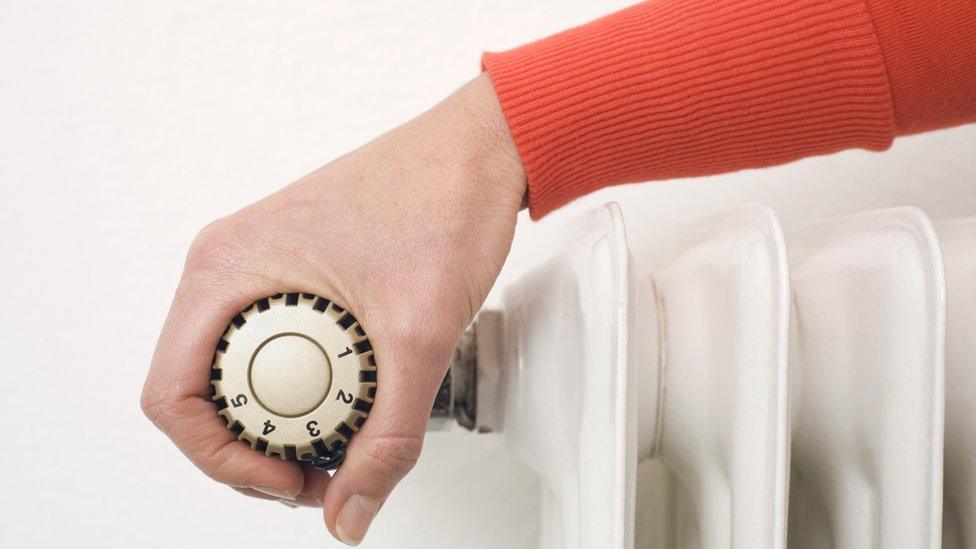Energy prices: Firmus gas increase of 56.3% comes into effect
- Published
- comments
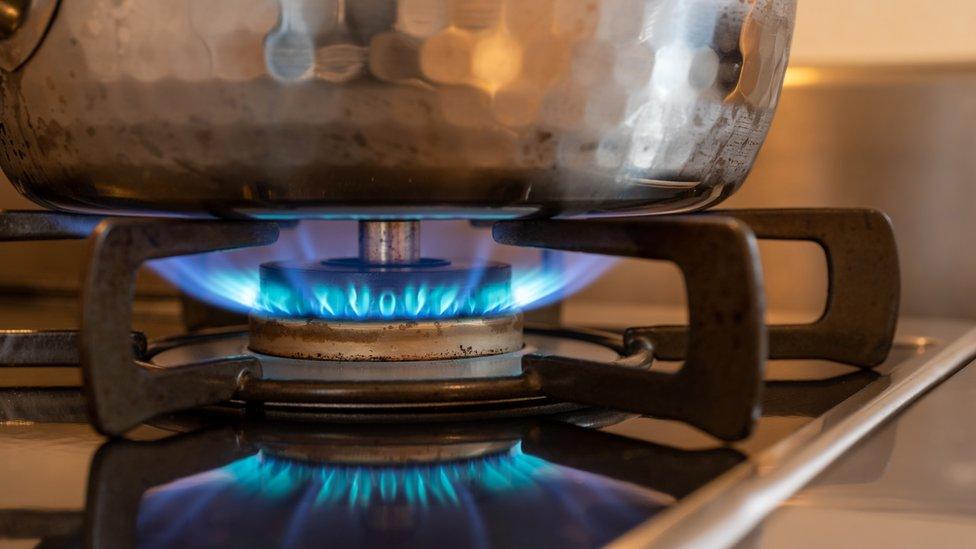
The 56.3% price increase comes into effect from Monday
Gas from Firmus Energy is going up by 56.3% on Monday - the largest single energy price hike in Northern Ireland to date.
The price rise applies to 62,000 customers in the Ten Towns area and 47,000 in Greater Belfast.
The annual gas bill of a typical household will see costs rise by more than £800.
It follows similar increases from other suppliers, including a number that came on Saturday.
SSE Airtricity, Electric Ireland and Click Ireland all put their electricity price up by about a third, while gas from SSE Airtricity went up by 28%.
Tens of thousands of people in Northern Ireland rushed to submit meter readings and purchase energy top-ups before the price hikes kicked in.
The Firmus price rise will see people in the Ten Towns area - including Antrim, Armagh, Ballymena, Coleraine, Craigavon, Londonderry and Newry - facing a rise of about £847 to a typical household gas bill.
Customers in the same area with a prepaid meter can now expect their typical costs to increase by about £806 per year.
In the Greater Belfast area, the typical annual bill has risen by about £855, while those with a prepaid meter will see costs rise by about £843 a year.
It is the firm's third rise this year and comes after prices were increased 16.3% in May and by 33.6% in February.
It's also the fifth increase by the company since April 2021 when average bills were £518.46.
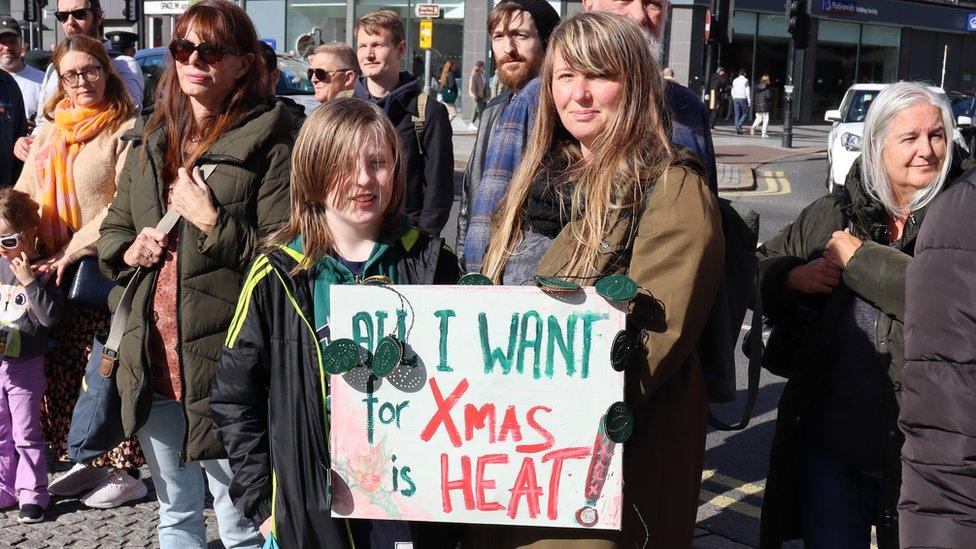
Protesters in Belfast were calling for the government to do more to help with rising bills
Protests against the cost-of-living crisis were held in Belfast and other cities and towns across Northern Ireland.
The Belfast rally was organised by the Cost of Living Coalition and coincided with dozens of similar demonstrations across the UK.

Mums 'just trying to stay afloat'
Leanne Gray is a full-time carer for her 13-year-old son Christian, as well as looking after his brothers and sisters.
She says their energy bills have doubled.
"We don't have full-time wages coming in, so carer allowance is what I rely on and my pay is £69.70 a week, which works out at 41p an hour.
"So trying to manage a household and trying to meet those rising costs, it's just not possible."
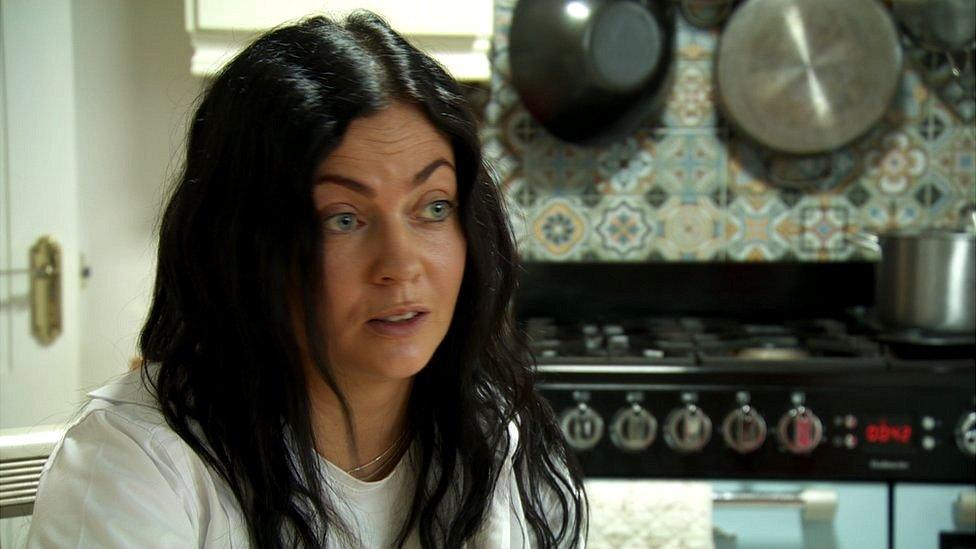
Leanne Gray is a full time carer for her 13-year-old son Christian
She adds: "Going though Covid you always heard 'we're all in the same boat', but we're not.
"We're just staying afloat right now."
She says even boiling the kettle is a worry now, so she makes a flask of tea instead of a cup.
Another mum, Chantal Prentice, says the rising costs have caused her to make changes.
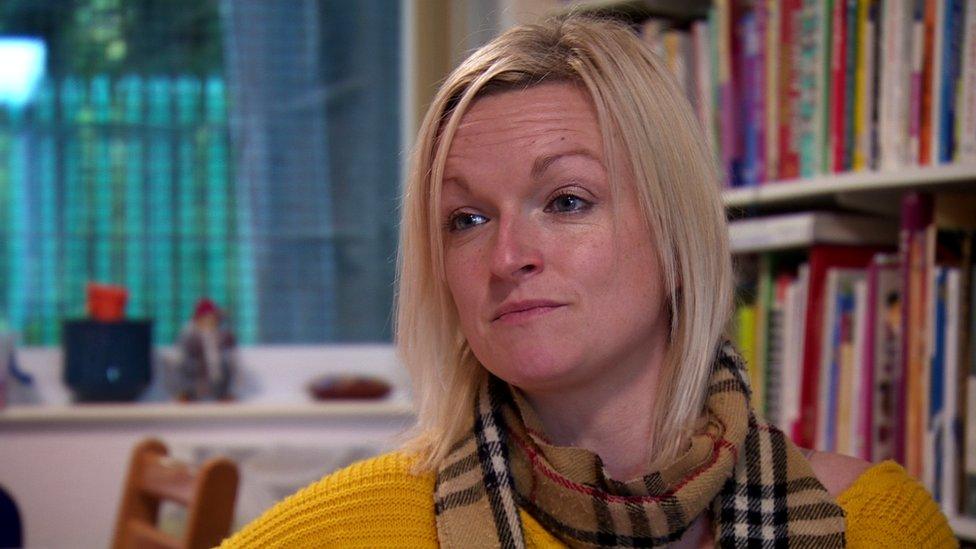
Chantal Prentice says her family will put on extra layers rather than switching on the heating
"Instead of going automatically 'it's a cold night, I'll switch the heating on', I don't.
"I say: 'OK kids let's get onesies on, let's wear our nightrobes, we'll get our teddy bear duvets down.' And the reason being is that it actually isn't even that cold outside now, it's going to get a hell of a lot colder.
"Any time they go to daddy's house, I won't switch the heating on, I'll just put an extra layer on, I'll put my nightrobe on.
"I won't let my kids suffer, but I'll suffer, if that makes sense."
Craig Harrison, from Carers NI, told BBC News NI that the price hike would lead to "even more carers living hand-to-mouth, even more carers having to make a decision between paying their energy bills or paying their rent or mortgage, because they can't do both".
"We heard from one recently for example who has had to tell her children that she's trying to lose weight but in reality there isn't enough money to buy food for everyone. So she's skipping meals and going without.
"And what that shows is this sticking plaster approach that we've had so far, where these bit part solutions from the Treasury aren't being delivered because there's no sitting executive. It's just not going to cut it anymore."

Hundreds of people attended an anti-poverty rally in Londonderry at the weekend.
The march, organised by Derry Against Fuel Poverty, followed the same route taken by civil rights campaigners in the city in 1968.
Organiser Sinead Quinn said the demonstration was to show "a united front" against many issues facing the most vulnerable in society.
"There is a lot of people here from across the political divide and across the province, so I'm really pleasantly surprised by the turn out," she said.
Caroline Rice, who attended the rally, said this would be a difficult winter for many people.
"I work 30 hours-a-week as a classroom assistant but I'm also on universal credit," she told BBC Radio Foyle.
"I don't need childcare thankfully, that would be an absolute minefield altogether, but even with the universal credit and my wages it is simply not enough."
Last week, Prime Minister Liz Truss said households in Northern Ireland would get a £400 energy support discount in November.
That will be provided via electricity suppliers, though the government has still not provided full details.
Northern Ireland domestic gas and electricity unit costs will also be capped from 1 November.
The cap will be backdated to cover October, reflecting the fact that the GB cap starts in October.
However the details of how that backdating will work are yet to be announced.
Related topics
- Published22 September 2022
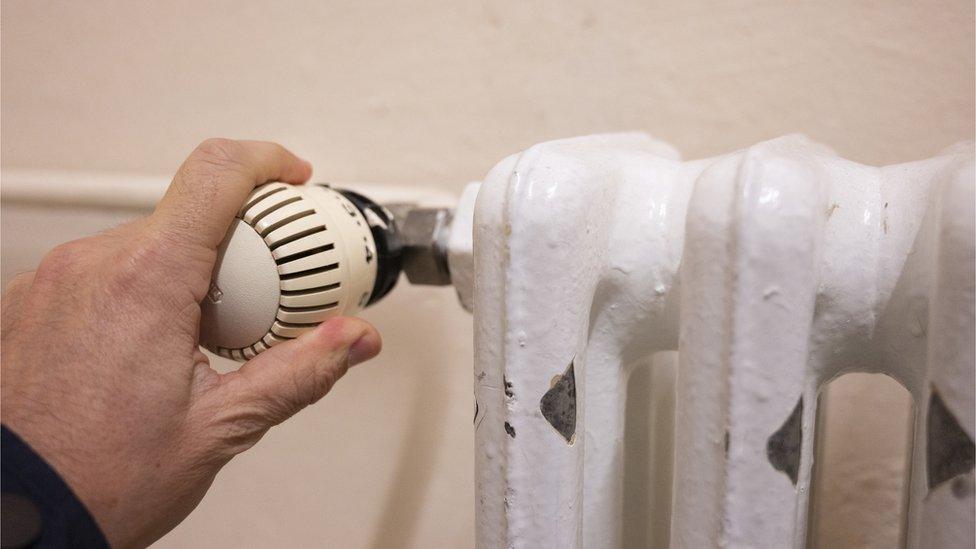
- Published1 October 2022
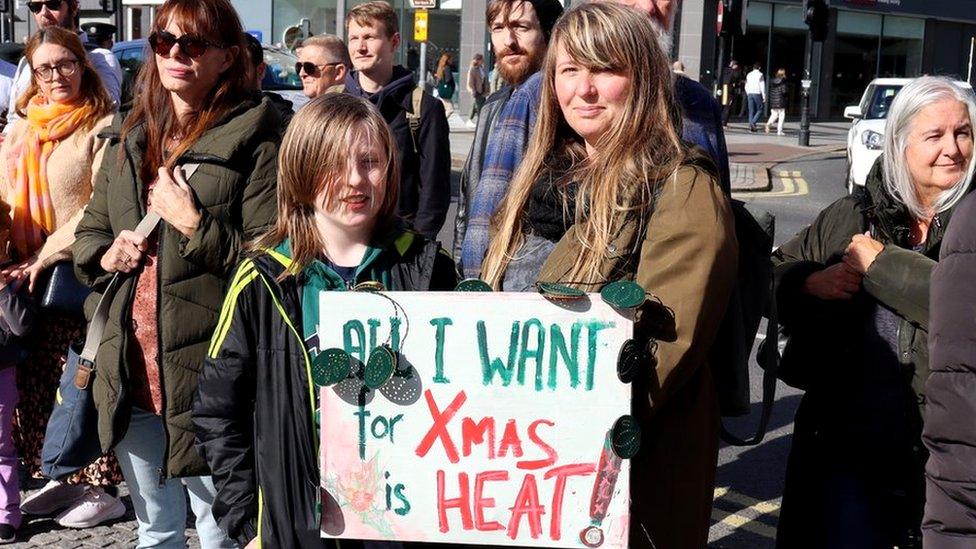
- Published2 October 2022
